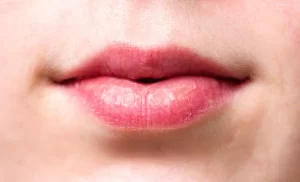Natural Remedies for Migraine Relief: Say Goodbye to Headaches Naturally
Hydration: Dehydration can trigger migraines, so it’s essential to stay hydrated throughout the day. Drink plenty of water and avoid excessive caffeine and alcohol, which can contribute to dehydration.
Cold Compress: Applying a cold compress or ice pack to the forehead or the back of the neck can help constrict blood vessels and reduce inflammation, providing relief from migraine pain. Wrap the ice pack in a cloth to prevent skin irritation and apply it for 15-20 minutes at a time.
Magnesium: Magnesium deficiency has been linked to migraines, so increasing your magnesium intake through supplements or magnesium-rich foods like nuts, seeds, and leafy greens may help reduce the frequency and severity of migraines.
Essential Oils: Certain essential oils, such as peppermint, lavender, and eucalyptus, have analgesic and calming properties that can help alleviate migraine symptoms. Dilute the essential oils with a carrier oil like coconut oil and apply them to the temples, forehead, or neck for relief.
Acupressure: Applying pressure to specific acupressure points can help relieve migraine pain and promote relaxation. Try massaging the area between the thumb and index finger, known as the LI-4 point, or the base of the skull, known as the GB-20 point.
Herbal Teas: Drinking herbal teas like ginger tea, chamomile tea, or feverfew tea may help alleviate migraine symptoms. These teas have anti-inflammatory and calming properties that can help reduce pain and promote relaxation.
Regular Exercise: Regular physical activity can help reduce the frequency and severity of migraines by improving blood flow and reducing stress. Engage in low-impact exercises like walking, swimming, or yoga for at least 30 minutes a day to experience the benefits.
Stress Management: Stress is a common trigger for migraines, so practicing stress-reduction techniques like deep breathing, meditation, or progressive muscle relaxation can help prevent and relieve migraine symptoms.
Aromatherapy: Aromatherapy using essential oils like lavender or peppermint can help promote relaxation and alleviate migraine pain. Diffuse the oils in a room or inhale them directly from the bottle for quick relief.
Dietary Changes: Certain foods and food additives can trigger migraines in susceptible individuals, so identifying and avoiding potential triggers can help prevent migraines. Common triggers include caffeine, alcohol, chocolate, aged cheeses, and processed meats.
Sleep Hygiene: Poor sleep quality or inadequate sleep can trigger migraines, so practicing good sleep hygiene habits like maintaining a consistent sleep schedule, creating a relaxing bedtime routine, and ensuring a comfortable sleep environment can help prevent migraines.
Seek Professional Help: If migraines persist despite home remedies or if they significantly impact your quality of life, it’s essential to seek professional help from a healthcare provider. They can evaluate your symptoms, provide an accurate diagnosis, and recommend appropriate treatment options, such as prescription medications or preventive therapies.
By incorporating these natural remedies into your routine and making healthy lifestyle choices, you can effectively manage migraines and experience relief from migraine symptoms. Remember to listen to your body, identify your triggers, and seek professional help if needed for personalized treatment and support.









